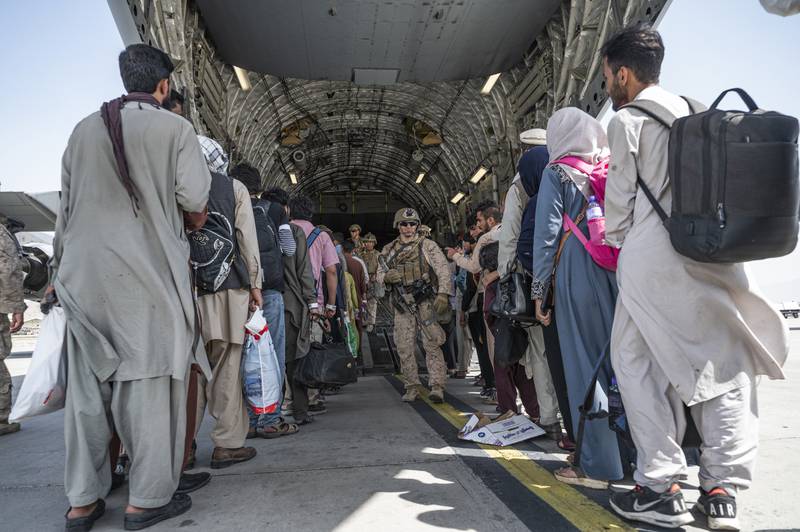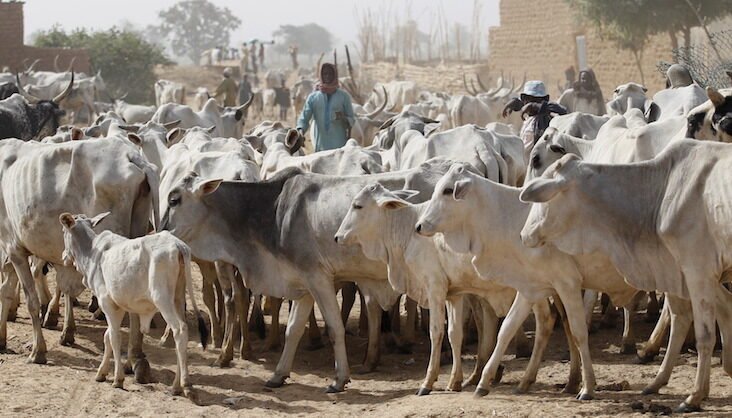Tag: Baby
-

Electoral Bill: Throwing baby out with bath water, By Ehichioya Ezomon
By Ehichioya EzomonRights activist and Senior Advocate of Nigeria (SAN), Chief Mike Ozekhome, is surprised that “some Nigerians were surprised” that President Muhammadu Buhari refused to assent the Electoral Act Amendment Bill 2021 on December 21, 2021.Actually, Ozekhome, appearing on an African Independent Television (AIT) political programme the previous day, to clarify the deadline for Buhari to sign the Bill, vowed that the president would not append his signature to the piece of legislation.Comparing himself to ‘Nostradamus’ for “correctly predicting Buhari 110 per cent of the time in the past six and half years” of his presidency, Ozekhome passionately genuflected to the president, to prove him wrong, for once, and assent the Bill.But alas, Buhari didn’t disappoint Ozekhome! Nor most Nigerians, who often read the president’s response to national issues through his body language, and public views expressed by his kitchen cabinet or the “cabals” in and out of government.So, instead of returning to AIT to congratulate Buhari “for a job well done,” Ozekhome was at the station the next day, December 21, to declare to Nigerians, “I told you so!” The rest is history!Perhaps, the disappointment for Nigerians is that Buhari discarded other fine points in the Bill, such as electronic transmission of election results by the Independent National Electiral Commission (INEC), thus literally “throwing the baby out with the bath water.”Some of the reasons Buhari gave for withholding assent to the Bill are: * The prevailing (security) situation in the country * High cost of conducting direct primary elections * The security challenge of monitoring the elections * Direct primaries violate democratic rights of citizens * Direct primaries marginalise smaller political parties.These reasons are, at best, tenuous, simplistic and an afterthought derived by the president from the weeks-long forum-shopping for excuses to pin his refusal to sign the Bill.For example, didn’t Nigeria, at the height of deadly operations of Boko Haram in the North-east states of Adamawa, Borno and Yobe, conduct the 2015 elections without reports of security threats, as Buhari envisages for the processes of the 2023 elections?In these times of unprecedented banditry and kidnappings in the country, INEC and state government have conducted governorship and legislative, and local government elections, respectively.Isn’t Buhari’s refusal to sign the Bill, on account of “the situation in the country,” an admission of failure of his administration to secure Nigeria despite government’s assurances that the conditions have improved from their pre-2015 stress levels?In other words, the president is forewarning, 14 months ahead, about possible security threats that could impact the processes, and the actual conduct of the 2023 general election.Which’s higher, the cost of conducting a delegate system of staggered indirect primaries from the ward to local government and state congresses on different dates, culminating in an elective national convention; or a one-off direct primary election at the ward level, and with or without a ceremonial or symbolic affirmative national convention, if a political party so decides?The INEC has debunked the floated N500 billion it reportedly needed to conduct political parties’ direct primaries, which it’s no part to play other than monitoring, with the commission budgeting N305 billion only for the entire processes of the 2023 polls.The security challenge of monitoring direct primaries isn’t near, match or surpass that for elections conducted by INEC or state governments, as the number of participants are restricted to card-carrying members of political parties voting at the ward level.Direct primary election doesn’t violate rights of the citizens. Rather, it’s a participatory system that allows ordinary members a say in the selection of candidates for elective positions. By contrast, indirect primaries ensure exclusion of a majority of party members.Direct primaries don’t marginalize smaller political parties that have limited membership, as attested in scanty votes (in hundreds) they score even at national elections, which’s prompted INEC to delist, and reduce the number of political parties from 92 to 18.The ruling All Progressives Congress (APC) and the main opposition Peoples Democratic Party (PDP) account for 108 of the 109 senatorial seats in the National Assembly (NASS), and 35 of the 36 states in the country.Anyway, direct primary poll was allegedly inserted late in the Electoral Bill by those opposed to electronic transmission of election results, to scuttle approval of the Bill by President Buhari.Indeed, a national daily has quoted Buhari as accusing governors of the APC and their NASS members of “deceiving Nigerians that they were engaged in a battle of supremacy over the issue of direct primaries, whereas they had secretly agreed to scuttle the possibility of transmitting election results electronically in 2023.”The Senate initially subjected INEC’s transmission of poll results to the dictate of the Nigerian Communications Commission (NCC), and approval by the NASS, only for the Upper Chamber to succumb to public outcry and subsequently went with the position of the House of Representatives that favoured the provision.Yet, the booby-trap was alive, and was resurrected during Buhari’s expansive consultations with stakeholders for their inputs, to inform his decision to assent the Bill.Nigerians may not know the inputs of the stakeholders, but Attorney General and Minister of Justice, Abubakar Malami (SAN), allegedly swayed the president’s mind, with critics describing Buhari as swallowing “line, hook and sinker” Malami’s suggestions in two separate letters to the president.It’s immaterial which suggestions Buhari considered to arrive at his decision to return the Bill to the NASS. But the president should remember the following scenarios in his tortuous political journey, so as leave behind a legacy of good-faith electoral reforms:* Buhari, as a serial candidate for president, was allegedly rigged out thrice, consecutively, in 2003, 2007 and 2011, but got reprieve in 2015 through a relatively free, fair and credible poll.* Buhari secured the ticket for his second term in office in 2019 via direct primaries in which he reportedly scored over 15 million votes of registered members of the APC across the country.* Buhari has made a mantra of free, fair and credible polls, backed by his famous quote of “I belong to everybody and I belong to nobody.” Certainly, in the spat over the Electoral Bill, the president must belong to one group – the politicians or the people!* Buhari on the campaign trail, even for himself, would ask the voters to cast ballots for whomever they liked. Do the voters even have the chance to freely participate in indirect primaries?* Buhari has rejected the same Electoral Amendment Bill five times based on varying reasons, some as minute as clerical errors. What a record by a president that wants posterity to be kind to him!Mr. Ezomon, Journalist and Media Consultant, writes from Lagos, Nigeria. -

Couple sell one-month-old baby for N50,000
The father and mother of a one-month-old baby have been arrested by the police for reportedly selling their baby to another woman at the rate of N50,000.
The couple was arrested on Thursday at Ilara area of Ode Remo, in Remo North Local Government Area of Ogun State.
The Ogun police spokesman, Abimbola Oyeyemi, told newsmen on Sunday that the couple Onyebuchi Eze and his wife, Oluchi Eze were apprehended following information received by officers at Ode Remo divisional headquarters, that the couple, who live at Ayegbami street, Ilara Remo, had “willingly sold their one-month-old baby to a woman” now at large.
Consequently, the DPO of Ode Remo, CSP Olayemi Fagbohun, was said to have detailed his detectives to the area and got the suspects arrested.
On interrogation, Oyeyemi revealed that the suspects confessed that “one Mrs Ruth Obajimi directed the yet-to-be-identified buyer to them” on December 14.
“They stated further that the woman told them that she is from the human rights office and that she will help them to foster their child.
“The woman then gave them the sum of N50,000 and they handed over the baby to her despite not knowing her from Adam,” the police image maker said, adding that efforts are being geared towards apprehending the said woman to recover the baby.
Meanwhile, the State Commissioner of Police, Lanre Bankole, had directed that the couple be immediately transferred to the anti-human trafficking and child labour unit of the state CIID for further investigation.
-

Two Ondo Govt officials arraigned for swapping, selling mentally challenged woman’s baby for N1m
Two officials of the Ondo State Ministry of Women Affairs and Social Development have been charged with conspiracy and theft of a baby belonging to a mentally deranged woman.
Sarumi Adeyemi and Orisamehin Florence Bosede were accused of stealing Deborah Iretioluwa Olorundare’s baby girl and exchanging same with an imbecile baby boy.
They reportedly committed the offence on September 14, 2020.
Deborah was said to have given birth to the baby on the street and was taken by good Samaritans to MM Catholic Hospital in Ondo town.
Some Ondo State Government officials waded in and sent the mother to a psychiatric hospital while the baby was taken to an orphanage.
Trouble began when a decision was taken that the baby should be taken to the mother who was undergoing treatment for the necessary bonding between mother and child but, intriguingly, officials of the Ministry of Women Affairs and Social Development did not bring the baby.
Deborah was said to have demanded to see her baby after she was discharged from the hospital, following which a baby boy was presented to her but she rejected it, insisting that she was delivered of a baby girl and not a boy.
Resultant petitions from concerned individuals alleging the involvement of a child trafficking syndicate in the matter prompted the Department of State Services to launch an investigation into Deborah’s claim.
The investigation, it was gathered, revealed that Deborah was delivered a female and not a male child presented to her by the defendants.
It was further revealed that Deborah’s baby was given to one Mrs. Toyin Olabiwonninu who allegedly paid about one million naira to adopt her.
A ministry official, Rosemary Ali, who was interrogated was said to have informed DSS operatives that she was actively involved in the adoption process and that she was certain that the baby was a female.
Ali said she had to lie in her first statement at the State CID claiming that the baby was a male because her life was being threatened.
It was also discovered that the errant government officials had asked Deborah and some of her family members to sign some documents claiming that they did not need the baby.
However, efforts so far made to retrieve the baby from Olabiwonninu have been unsuccessful as she was said to have traveled out of the country with the baby and showing no sign of returning home any time soon.
Hearing in the case is billed to commence before Justice A. A Fasanmi on November 11, 2021.
-

35-year-old landlord kills tenant’s 3-month-old baby in Bayelsa
A quarrelsome thirty-five year-old landlord, Oyeinmiebi Selekowei and his mother have landed in Police net for killing the three-month-old baby of his tenant during a brawl at Amassoma community in Southern Ijaw Local Government Area of Bayelsa State.
This is even as the Bayelsa State Government through its Gender Response Initiative Team (GRIT) has indicated readiness to support the legal processes that will lead to the prosecution of the landlord who is currently in detention for culpable homicide.
Information gathered, indicated that the suspect who was angry with the intervention of Pere, had threatened to deal with him.Pere, in a complaint lodged with GRIT stated that the suspect transferred aggression on him by holding his child upside down and hit the back of the child’s head against the door until the baby died.
According to sources, Selekowei had on September 13, 2021 allegedly killed the three-month-old baby of his tenant, Oscar Pere because the latter tried to rescue a woman believed to be the landlord’s mother from the domestic violence being visited on her by the son.
that obviously aware of the consequence of such murderous act on the part of the landlord, several relatives of his, had allegedly mounted pressure on the father of the deceased to settle the matter amicably.
Other sources said this situation reportedly led Pere, who is a youth Pastor with the Redeemed Christian of Church of God (RCCG), to disclose that he “has handed the case to God.”
He was quoted to have told officials of GRIT that he did not want to be involved in any case against his child’s killer.
“Let God fight because vengeance belongs to God. I will not want to offend my God by doing things outside His will,” Pere was alleged to have said in his message.However, officials of GRIT are not ready to allow the case to be swept under the carpet and are ready to press ahead with the legal process since it borders on criminality against the State
-

64-year-old man defiles 2-year-old baby in Ogun
The Police Command in Ogun on Tuesday said its operatives have arrested a 64-year-old man, Ayotunde Taiwo, for allegedly defiling a 2-year-old baby in Ogun.The command’s Public Relation Officer (PPRO), DSP Abimbola Oyeyemi, disclosed this in a statement made available to newsmen in Ota, Ogun.Oyeyemi explained that the suspect was arrested following a complaint lodged at Agbado Divisional Headquarters by the mother of the victim, who reported the incident at at about 11 a.m. on Tuesday.According to the mother’s victims, she noticed that her daughter can not walk well, and when she inspected her body, she saw blood gushing out of her private part.“When she asked her daughter about what happened to her, the little girl pointed to the house opposite their own house.“On getting to the house, the suspect was met washing his blood stained boxer shot, indicating that he just had unlawful carnal knowledge of the little girl.“Upon the report, the Divisional Police Officer (DPO) Agbado Division, CSP Kehinde Kuranga, detailed his detectives to the scene where the suspect was promptly arrested,” he said.The PPRO, however, said the victim had been taken to hospital for medical treatment.Meanwhile, the Commissioner of Police, CP Edward Ajogun, had ordered the immediate transfer of the suspect to the Family Support Unit at Ota Area Command for further investigation and prosecution. -

Baby born during Afghan evacuation named after U.S. aircraft
A baby born on board a U.S. military flight during the evacuation mission from Afghanistan has been named after the plane.
The girl was born at the U.S. Ramstein Air Base in Germany and was named Reach after the plane’s call sign, commander of the U.S. forces in Europe, Tod Wolters, said at a Pentagon briefing Wednesday.
The Boeing C-17 planes used by the U.S. air force often use the call sign “Reach” followed by a combination of numbers.
The U.S. Air Mobility Command had tweeted at the weekend that a woman went into labour during the flight from Qatar to Germany and had experienced complications.
Her condition improved after the plane descended in altitude to increase air pressure, which helped to save the mother’s life.
Soldiers helped to deliver the child in the aircraft’s cargo bay upon landing, the command said.
The military has since spoken with the parents, Wolters said.
“As you can well imagine, being an Air Force fighter pilot, it’s my dream to watch that young child called Reach grow up and be a U.S. citizen and fly United States Air Force fighters in our Air Force,” Wolters joked.
The German air base was just a transit point for the evacuees from Afghanistan.
At the moment they were generally being flown from there to Dulles International Airport, near Washington DC, and then distributed to U.S. military bases.
Ramstein, near the western German city of Kaiserslautern, was the largest U.S. air base outside the country.
Wolters said it had capacity for up to 12,000, and that together with other German sites and one base each in Italy and Spain, there was capacity for 25,000 evacuees.
-

Panic as fleeing cow kills three-month old baby in Delta
Emman OvuakporieThere was panic on Monday at the Ebrumede community in the Effurun area of Uvwie Local Government Area of Delta State after a fleeing cow reportedly killed a three-month-old baby.
It was gathered that the cow was being escorted by two herdsmen to a buyer when it strayed off the DSC Expressway by Ebrumede Magistrate Court near the DSC Roundabout to attack the victim.
The incident occurred about at 11 am on Monday leading to the death of the baby.
-

Mother throws baby from burning building
A desperate mother was forced to throw her baby from a burning building in the South African city of Durban after looters set fire to shops on the ground floor.
The woman was seen dropping the child down to a crowd of bystanders with their arms outstretched as smoke billowed around her.
The baby escaped unhurt and was later reunited with its mother, Yahoo News reported, quoting the BBC.
It was one of numerous scenes that have left South Africans in shock after six days of looting and arson in Johannesburg and KwaZulu Natal.
Seventy-two people have died and more than 1,200 people arrested, according to official figures, since former president Jacob Zuma began a 15-month jail term, sparking protests that swiftly turned violent.
Looting has hit supply chains and transport links especially in the southeastern province of KwaZulu-Natal, impacting goods and services around the country.
The government said 208 incidents of looting and vandalism were recorded Wednesday, as the number of troops deployed doubled to 5,000.
President Cyril Ramaphosa met leaders of political parties and cautioned that parts of the country “may soon be running short of basic provisions following the extensive disruption of food, fuel and medicine supply chains”.
State-owned logistics operator Transnet declared a “force majeure” on Wednesday — an emergency beyond its control — on a key rail line that links Johannesburg to the coast because of the unrest.
In the port city of Durban, hundreds of people queued outside food stores hours before they opened, as lines of cars also formed outside fuel stations, an AFP photographer saw.
-

‘Why some babies cry at night’
The issue of babies crying at night which makes parents sleepless has been worrisome to many people, especially when the baby is the first.
Many parents have to be awake and continue to device different means to keep babies calm, while thinking of why the infant cries or what he or she wants.
This is because, some babies cry at night and sleep during the day, leaving parents and family members tired and wondering what the problem is, with some thinking that the baby has pains on the umbilical cord or having stomach ache, among others.
Mrs Fatima Umar, a businesswoman and mother of two living in Abuja, said whenever she was due for delivery, her major worry was the sleepless nights because both her children cried nonstop every night from birth up until three months.
She said “sometimes I used to wonder if my baby is seeing something that I don’t see that is making him cry so much.
“When I had my second baby, I even took him to our chief Imam to pray for him because I didn’t understand why he would continue to cry once it was 2 a.m. till around 4.30 a.m. or 5 a.m.
“My neighbour kept assuring me that he would stop and I just endured and got used to it and as soon as he was three months, the crying stopped and we could sleep throughout the night.”
Umar, who said she still could not understand why some babies cry at night, added that “without any medication, they would stop when the time comes. However, what is it that makes them cry so much that does not need medication?,” she asked.
Mrs Amaka Njoku, a civil servant and mother of five who also lives in Abuja, said all her children cried at night and she got used to it and just needed to put the things she needed for the sleepless nights.
Njoku said that when she had her first daughter, there was a day she took her to the clinic near her house twice at night when she couldn’t endure the crying but the nurses examined her and said nothing was wrong with her.
She added that when she told her female colleagues, many said they experienced same and advised her to just make the baby comfortable and wait for when the crying would stop.
However, Dr Eziechila Ressie, a Consultant Paediatrician with the Federal Medical Centre, Jabi, Abuja, says newborn babies often cry at night because of the air they swallow alongside breast milk.
She told NAN on Sunday in Abuja that night cries by babies of between one month and three months had been the commonest complains by mothers, adding that “it is common especially among new or first time mothers.”
According to her, one of the reasons babies cry at night is because they are able to take in a lot of milk and they are aggressive in their feeding.
“And they are not able to coordinate the swallowing of breast milk and swallowing of air; they breath in and swallow at the same time and have the problem of swallowing a whole lot of food alongside air,” she said.
She explained that the air the baby swallowed usually did not get absorbed into their system.
She added that “because the baby’s intestine is narrow as the air passes, it dilates and cause pain because of the volume of milk and air they consumed and they experience a lot of colic.”
She said that some babies have pain more than others.
She also explained that babies cry more at night because during the day when mothers feed them, they carry them until they belch.
“They put them on the shoulder and make them belch but at night the mothers are tired as nobody has the time to hold the baby for that long.
“Infact, some mothers feed their babies while laying down and as they feed, the mothers are sleeping and nobody has time to keep the baby up for long time to belch.
“So, all the gas that the baby swallowed while feeding must go down the intestine, causing dilation.”
She stated that the problem most children had at night was because the mothers don’t make the air escape through the mouth.
She said “around three months of age, the pain subsides very significantly and this happens because babies are able to manage the pain, secondly they are able to coordinate swallowing milk and air.
“So, they suck in less air compared to initial time and again, we teach mothers breastfeeding technique by ensuring a large portion of the areola is into the babies mouth.”
Meanwhile, Mrs Akueshi Uchechi, a Senior Nursing Officer at FMC Jabi, Abuja, said that often when babies cried, parents should find out what happened by checking the diaper.
According to her, it is important to change baby’s diaper often and when the baby continues to cry, then feed.
She advised mothers to sleep when babies were sleeping, adding that a new mother would usually need help so as not to enter into postpartum depression.
